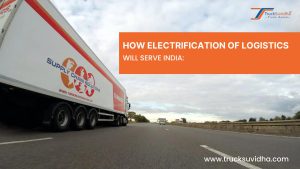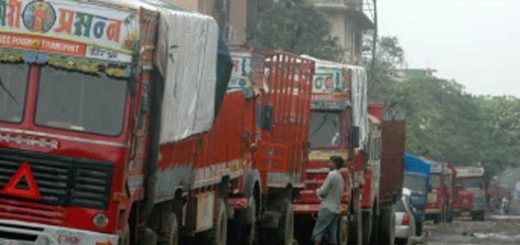How electrification of logistics will serve India
Electric vehicles have now become a crowd favourite among the road transportation sector and its benefits in the logistics industry is only going to take its popularity far.
Once an outsider, Electric Vehicle (EV) is soon becoming a crowd favourite in the Indian road transportation sector. The numbers prove it, with the sector witnessing unprecedented sales of around 10 lakh EVs in 2022 and 2.78 lakh EVs in the first quarter of 2023 according to EV sales data from the Government of India’s Vahan registration data repository.
Benefits of EVs in the logistics industry
The popularity of EVs has risen in the logistics industry in India, due to their ability to reduce operating costs, increase efficiency and curb tailpipe emissions.
Also, as EVs help decarbonise last-mile delivery — which is the last leg of the delivery process from the distribution hub to the customer’s doorstep — many logistics-heavy companies are eager to induct them into their delivery fleet. According to industry estimates, at least 80,000 electric two wheelers were added to India’s last-mile two-wheeler delivery fleet of around 5 lakh vehicles in 2022.
Moreover, backed by India’s efforts to achieve its climate goals, government subsidies and policies incentivising purchase of EVs have also played a significant role in boosting EV sales in logistics.
As per the Indian government’s policy think tank NITI Aayog, India could reduce its logistics’ cost by 4% of the country’s GDP and save 10 gigatonnes of carbon dioxide emissions by 2030 with clean technologies such as electric mobility.
Challenges of EV adoption and their possible solutions in the logistics industry
Around 70% of Indian goods are transported by roads, mainly by large fossil-fuel-dependent vehicles, according to the Centre for Study of Science, Technology and Policy (CSTEP). Moreover, the road freight sector accounts for 54% of the country’s carbon emissions; and that percentage is only expected to increase with growing popularity of e-commerce.
That’s where EVs emerge as a potential saviour. With their ability to reduce direct greenhouse gas emissions, EVs could revolutionise the logistics industry. However, EV adoption in the industry comes with its fair share of challenges in India.

Some of the challenges and suggested solutions.
Overcoming charging infrastructure limitations with EV-friendly roads
Currently charging infrastructure is limited in India therefore EVs in logistics industry can be deployed at locations with recharge points or on routes that can be accessed on a single battery charge. Having said that, the Ministry of Road Transport and Highways is planning to develop EV-friendly highways, with regular charging points, so this challenge will soon be overcome.
Minimising high upfront costs through government incentives and policies
The upfront purchase price of EVs is significantly higher than their fossil fuel counterparts. However, under India’s FAME – II scheme for promoting electric mobility, buyers can get a direct discount on the cost of an EV. Hence, lower upfront costs through government incentives and policies for commercial vehicles can help encourage logistics companies to change their fleet to EVs.
Charging EV batteries with electricity from renewable energy not fossil fuels
While using an EV may not cause air pollution, fossil-fuel-generated electricity used to power them could. Hence, any logistics business that wants to seriously go “green” needs to consider switching to renewable energy to charge its EV fleet. With 40% of India’s installed energy capacity coming from non-fossil-based fuels, as per PIB, this could soon turn into a reality.
Developing alternative batteries to resolve EV battery issues in logistics.
The main component of EVs, its batteries, are not only expensive but also large in size, thus limiting storage in the delivery vehicles. EVs also take relatively longer to power up than their conventional counterparts, thus increasing delivery time. Developing solutions to meet these challenges could further encourage logistics-dependent companies to make the switch to EVs.
The growth and sustainability of EVs in logistics in India rides on the back of the country’s ability to develop affordable, high-performance, smaller EV batteries using local raw material while generating cleaner power and the necessary infrastructure to support them.
Read more at-https://bit.ly/3HS3ujW




Recent Comments